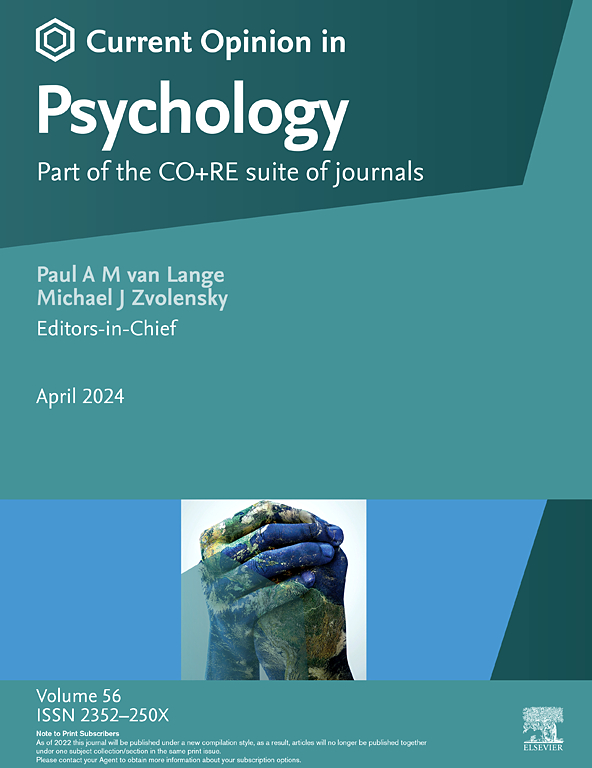人格特质与价值一致性对人际吸引力与组织吸引力的整合研究
IF 6.9
2区 心理学
Q1 PSYCHOLOGY, MULTIDISCIPLINARY
引用次数: 0
摘要
吸引力是一种心理倾向,其特征是积极的影响、积极的评价反应和对目标(如个人、团体或组织)的接近动机。人际吸引力和组织吸引力都属于这一宽泛的结构,并作为旨在与目标形成正式社会联系的行为的先决条件(例如,与某人建立亲密关系或向组织提交工作申请)。尽管在过去的几十年里,这两种文献在很大程度上是独立发展的,但它们在概念上有很多相似之处,经验发现趋同,并且都非常强调人格特质在吸引过程中的作用。在本文中,我回顾了两个文献之间的概念重叠和经验收敛。研究表明,人们更容易被具有相似性格特征的人或组织所吸引,尤其是诚实、谦逊和乐于接受经验,这些都是与价值观相关的核心性格特征。这表明价值一致性是一种合理的共同机制。我还概述了未来的研究方向,以支持更广泛和程序化的吸引力理论的发展。本文章由计算机程序翻译,如有差异,请以英文原文为准。
Integrating research on interpersonal and organizational attraction via personality traits and value congruence
Attraction is a psychological tendency characterized by positive affect, a positive evaluative response, and an approach motivation toward a target (e.g., person, group, or organization). Both interpersonal attraction and organizational attraction fall under this broad construct and serve as antecedents to behaviors aimed at forming formal social bonds with the target (e.g., initiating a close relationship with a person or submitting a job application to an organization). Although these two literatures have developed largely independently over the past few decades, they share substantial conceptual similarities, convergent empirical findings, and a strong emphasis on the role of personality traits in attraction processes. In this paper, I review the conceptual overlap and empirical convergence between the two literatures. The review indicates that people are more attracted to others or organization that share similar personality traits—particularly honesty-humility and openness to experience, which are central value-related personality traits. This suggest that value congruence is a plausible common mechanism. I also outline future research directions to support the development of a broader and programmatic theory of attraction.
求助全文
通过发布文献求助,成功后即可免费获取论文全文。
去求助
来源期刊

Current Opinion in Psychology
PSYCHOLOGY, MULTIDISCIPLINARY-
CiteScore
12.10
自引率
3.40%
发文量
293
审稿时长
53 days
期刊介绍:
Current Opinion in Psychology is part of the Current Opinion and Research (CO+RE) suite of journals and is a companion to the primary research, open access journal, Current Research in Ecological and Social Psychology. CO+RE journals leverage the Current Opinion legacy of editorial excellence, high-impact, and global reach to ensure they are a widely-read resource that is integral to scientists' workflows.
Current Opinion in Psychology is divided into themed sections, some of which may be reviewed on an annual basis if appropriate. The amount of space devoted to each section is related to its importance. The topics covered will include:
* Biological psychology
* Clinical psychology
* Cognitive psychology
* Community psychology
* Comparative psychology
* Developmental psychology
* Educational psychology
* Environmental psychology
* Evolutionary psychology
* Health psychology
* Neuropsychology
* Personality psychology
* Social psychology
 求助内容:
求助内容: 应助结果提醒方式:
应助结果提醒方式:


